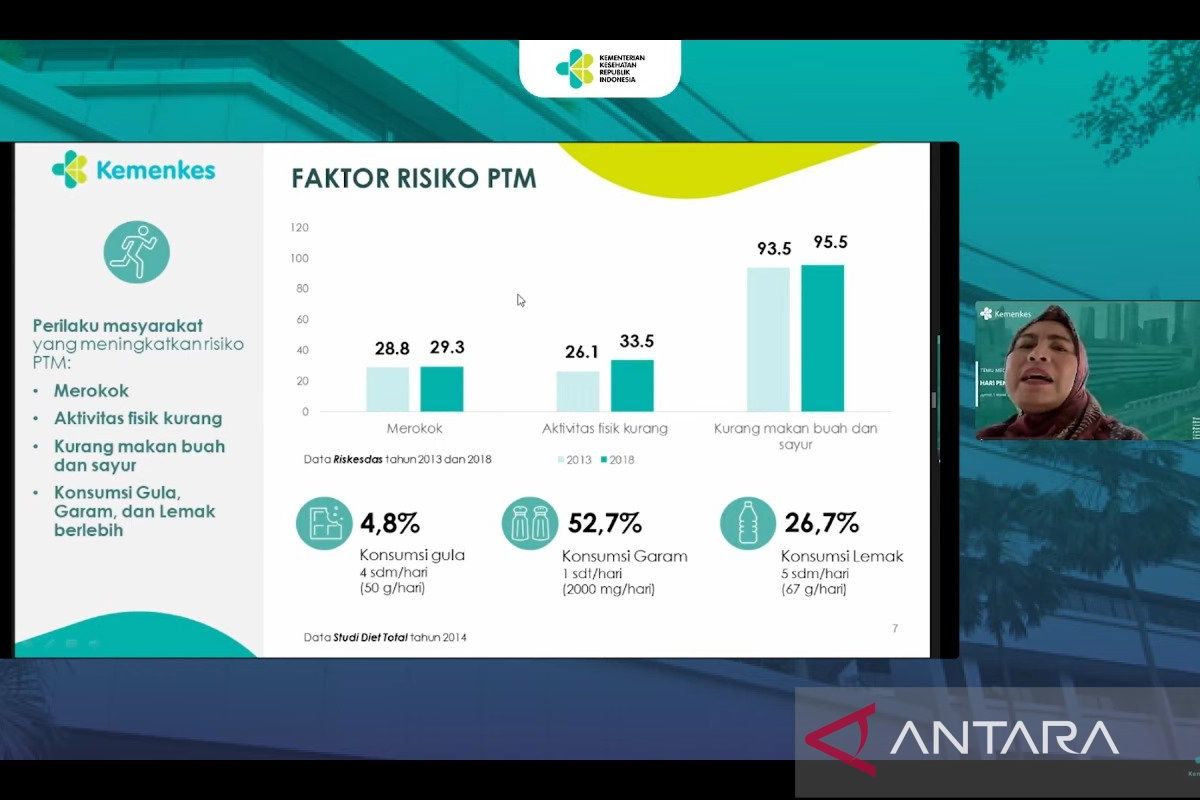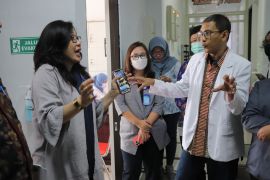"In the integrated service posts, the health workers or cadres can ensure that the blood pressure and blood sugar of everyone who suffers from these diseases are controlled and monitored. Moreover, (hypertension and diabetic patients) must get treatments according to standards," the director of non-infectious disease prevention and control at the ministry, Eva Susanti, stated during the "World Kidney Day Press Briefing" hosted online here on Thursday.
According to Susanti, if hypertension and diabetes were to be left unchecked, it would put people at risk of developing chronic kidney disease. Susanti drew attention to five causes of the disease in adults, with renal hypertension ranking the highest, at 37 percent, followed by diabetic nephropathy, at 32 percent.
She explained that primary health posts can cover some 85 thousand villages, whereas posyandu can cover 300 thousand neighborhoods.
Moreover, public health centers, which can cover 7,230 sub-districts, are equipped with tools for early disease detection.
Susanti believed that improvements to access and capability tailored to health facilities and laboratories' needs are necessary to address the 14 diseases that cause the most deaths in Indonesia, with kidney disease being one of them.
"For the outermost areas, we build the facilities, then we fulfill the needs for its governance and diagnostics, and we also pursue transformation in terms of the health security system by pushing for (the fulfillment of) the domestic products of the required medical tools as well as improving emergency response," she remarked.
Moreover, the transformation covers improvement in terms of human resources so as to improve the quality and quantity of the personnel.
She affirmed that those efforts are part of the health transformation that is aimed at facilitating early detection in order to prevent kidney diseases in Indonesia. She deemed the efforts to be necessary to complement the basis of health transformation, which is health promotion, aimed at educating people to encourage them to partake in early detection.
The director stated that three diseases that claimed the maximum number of lives in 2009 and 2019 are heart disease, stroke, and chronic obstructive pulmonary disease (COPD). Kidney disease ranks eighth in both years, she pointed out.
She stated that the amount of funding needed to handle non-infectious diseases can cross Rp400 trillion.
On the occasion, Susanti also drew attention to some lifestyle choices that put people at risk of developing diseases, such as smoking, lack of physical activity, inadequate consumption of fruits and vegetables, as well as excessive sugar, salt, and fat intake.
Related news: Jakarta recommends non-drug therapy to prevent acute kidney disease
Related news: Ministry provides aid for RSUDs, RSUPs to treat catastrophic diseases
Related news: Ministry intensifies cooperation with BPOM to improve drug control
Reporter: Mecca Yumna Ning Prisie
Editor: Azis Kurmala
Copyright © ANTARA 2024












